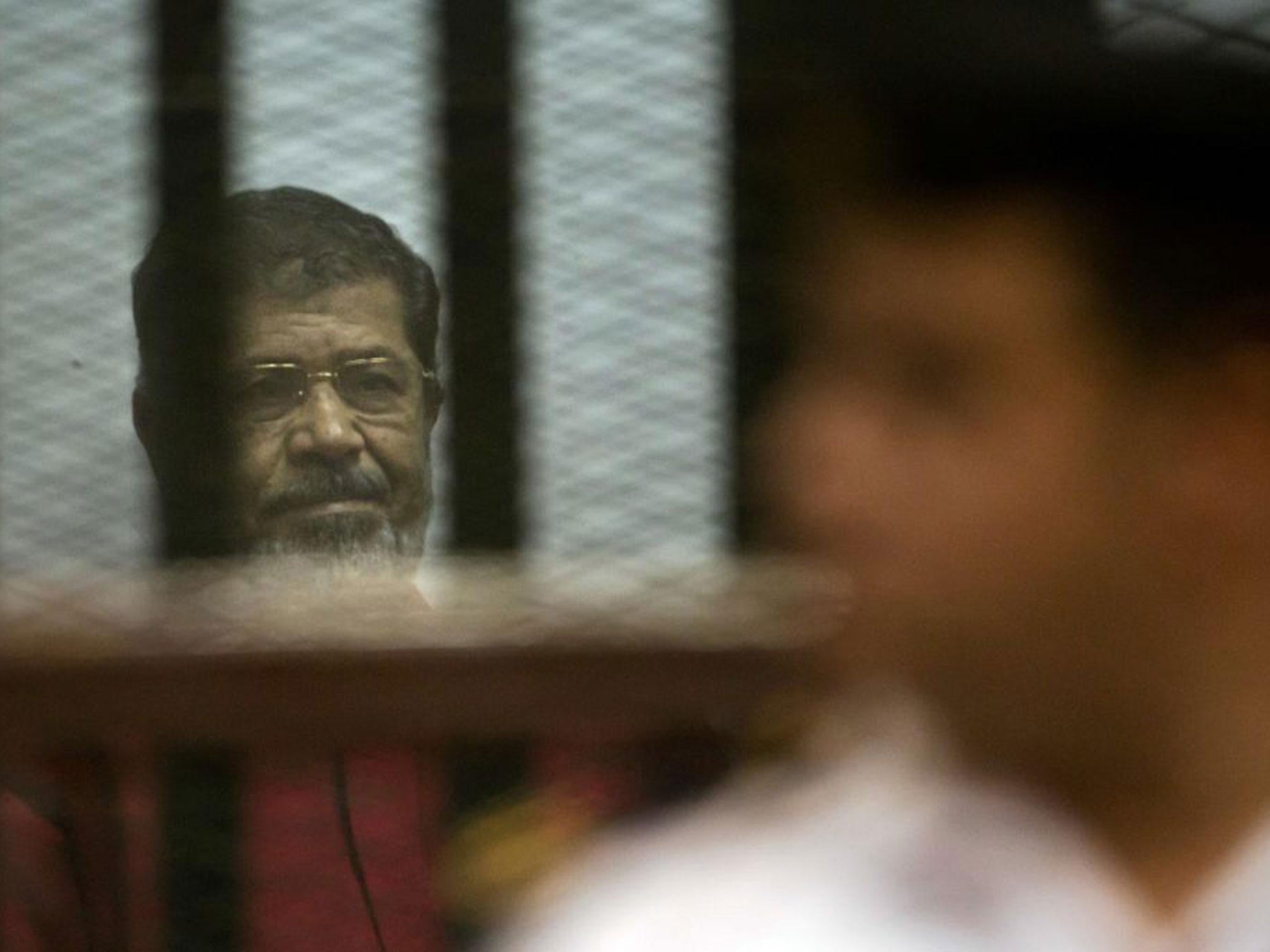Egypt sentences Al Jazeera journalists to death as Mohamed Morsi given new life term in Qatar espionage case
The deposed Egyptian President was previously sentenced to death in another case

Two Al Jazeera journalists are among six people sentenced to death by an Egyptian court for allegedly passing state secrets to Qatar.
Mohamed Morsi, the deposed Egyptian President, was sentenced to life in prison following what Amnesty International condemned as “fundamentally unfair” trials.
He was acquitted of supplying Qatar with classified documents but found guilty of leading an unlawful organisation, his lawyer told the AFP news agency.
Abdel Moneim Abdel Maksoud said the former leader was also convicted of having “stolen secret documents concerning state security” and handed another 15-year jail term at the Cairo Criminal Court.
Judges issued their final ruling in the case on Saturday but the advice of Egypt’s Grand Mufti must still be sought before they are confirmed.
Prosecutors originally claimed that Morsi and his head of office, Ahmed Abdel-Ati, passed files to secretary Amin El-Serafy, who then passed them to his daughter, Karima, who gave them to agent, Ahram reported. They were all given life sentences of 25 years and additional 14-year terms.
The remaining defendants, including journalists and activists, were charged with colluding to pass classified documents to Al Jazeera, which is based in Doha, and a Qatari spy.
The former director of news at Al Jazeera’s Arabic channel, Ibrahim Helal, was sentenced to death alongside former correspondent Alaa Sablan after being accused of leaking national security documents to Qatar.
Neither defendant is in Egypt and they were tried in absentia.
Asmaa Alkhatib, a journalist with the pro-Muslim Brotherhood Rassd News Network, were also sentenced to death in absentia.
Three other men handed the death penalty are in Egyptian custody - Ahmed Afifi, Mohamed Kilani, and EgyptAir flight attendant and academic Ahmed Ismail.
Egypt's relations with Qatar have been tense since the overthrow of Morsi, who was supported by the wealthy Gulf state.
Several Al Jazeera journalists have been detained in recent years, including Mohamed Fahmy, and Baher Mohamed, who were jailed for “spreading false news” but later pardoned, while Australian Peter Greste was deported in that case.
The current Egyptian administration, under President Abdel Fattah el-Sisi, claims the network’s coverage of Egypt and elsewhere in the Middle East is biased in favour of militant Islamic groups.
Al Jazeera says it has been “consistently and deliberately targeted” by the Egyptian authorities since it started coverage of Arab Spring protests in 2011 and was forced to close its offices in the country.
“Al Jazeera continues to reject any accusations that it has in any way compromised its journalistic integrity,” an article said.
Amnesty International, Human Rights Watch and Reprieve are among international organisations who have condemned the trials, while the Committee to Protect Journalists lists Egypt as one of the most dangerous places for reporters to work.
In pictures: Egypt celebrates after President Morsi is ousted
Show all 10In its annual report, Amnesty International said the criminal justice system was serving as “an instrument of state repression” and political persecution.
The group said Morsi’s trials were “fundamentally unfair” as they relied on evidence gathered while he was subject to enforced disappearance by the army during the months after being removed from power.
As leader of the now-banned Muslim Brotherhood, Morsi became Egypt’s first democratically elected president following the overthrow of Hosni Mubarak in 2011.
But he was ousted by the military amid protests in July 2013 and has since been sentenced in four major trials.
He was sentenced to death for alleged involvement in a mass prison break during the Arab Spring, 20 years imprisonment over the detention and torture of protesters and life over supposed collusion with foreign militant groups including Hamas and Hezbollah.
All sentences are currently being appealed and he remains in custody.
Subscribe to Independent Premium to bookmark this article
Want to bookmark your favourite articles and stories to read or reference later? Start your Independent Premium subscription today.

Join our commenting forum
Join thought-provoking conversations, follow other Independent readers and see their replies